I am quite excited to show you our farm. If any of your organic buffs are interested, I will be happy to host a visit for you so that you and your friends will fully understand what this organic movement is all about.
Going ORGANIC - a holistic concept
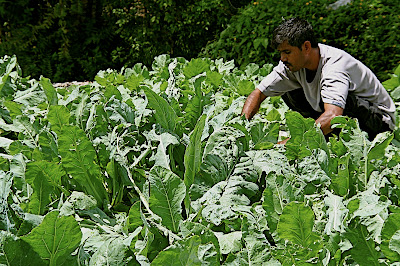
First of all, before I describe what it is like on a farm like ours, I will need to take a short detour to explain what organic farming is about. Actually, this is a very holistic concept. It is not only about the absence of chemicals and in its place are piles of dung and other smelly stuff. To some people, the smellier and basic a farm, the more organic it is. This is totally wrong. Organic farming is about sustainability and responsibility not only to the consumers, but also to the way we use the land, proper hygiene and pollution control. It is also about treating each other on the farm, including our employees and suppliers with respect. Finally, it is about how we treat other living things (including pests) by refraining to kill indiscriminately.
A NEVER-ENDING journey
In truth, these lofty goals are much easier to write down than to achieve. The journey and challenges to achieve each of these goals are both difficult as well as testing. We may, at any one time, not fulfill some of these objectives, but we should never stop trying. That is part of the fun – to do something meaningful.
Our farm is still on this never ending journey. We think we have come quite a long way compared to traditional farming methods, but we still have a very long way to go.
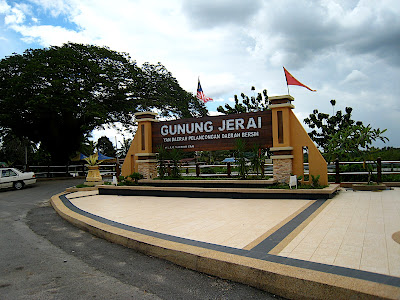
at the foot of Gunung Jerai
A WELCOME SIGHT
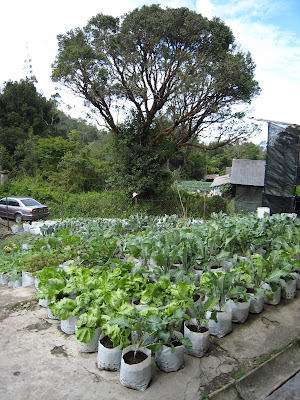
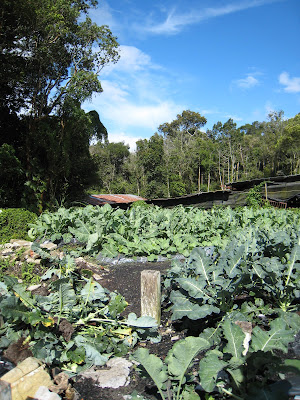
The first thing you will see and feel when you first arrive at the farm is the peaceful natural setting. At this altitude (1300 meters), the air is cool and fresh. For the luckier ones, a fresh breeze, rustling through the forest enthusiastically welcomes your arrival. Perched on top of a small hillock is a rustic farmhouse that is surrounded by a small vegetable plot. You walk through the gate and walk up the steps towards the farmhouse. You start to notice just how healthy and fresh the vegetables look. You start to identify what kinds of vegetables each are and there will be many that you just cannot name or have seen before. There are lettuces, broccolis, zucchinis, cabbages, radish and many others.

You look around and take in a panoramic view of the farm setting. The first thing you will notice is the difference this farms looks compared to what you are used to in places such as in the Cameron Highlands. This is a place where the forest blends nicely with the farm. Green houses, vegetable plots and forest merge into each other in a seamless way.
ORGANIC products that look BETTER and HEALTHIER...
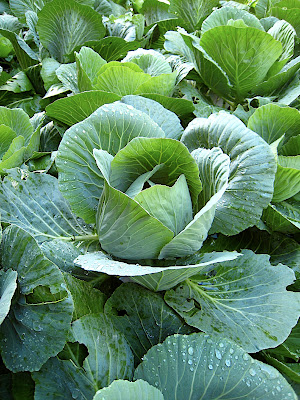
fresh iceberg lettuce
For most visitors, the first question is whether these are actually grown organically. To many, their perception of organic produce is that they normally look less impressive than their chemically grown counterparts. They should look thinner, smaller and weaker. The ones they are looking at now are large, full of vitality, and consistent from plant to plant. Visitors generally comment that it is hard to believe that these naturally grown vegetables can actually look better and healthier than non-organic versions. But that is what it is.

baby cos lettuce
The next thing you will start noticing after the initial excitement is over is the absence of the characteristic “pastoral” smell associated with vegetable farms. Generally such smells are associated with animal dung, rotting materials etc. Since we are strictly compost based, there should be no such smells. Well developed compost should only exude an earthy, natural smell. Anything less will indicate a poor composting process. Associated with this lack of bad smells, is the lack of flies for the same reason. Flies generally do their buzzing around food or rotting materials. Good compost offers no such great attraction to these pesky insects.
Come, enjoy a CUPPA on us ...
If you have made an earlier appointment, farmer Ooi or a member of his family will come and greet you and invite you for a cup of tea in our very simple showroom to explain to you how the farm works. By the end of the briefing, you will be raring to go to the tour to experience for yourself how a sustainable farming actually works.
